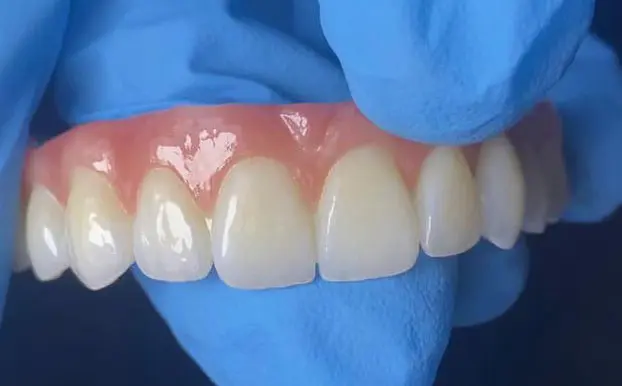Dentures
Dentures and Implant-supported Dentures:
Dentures and Implant-supported Dentures are both options for replacing missing teeth. The best type of denture for you will depend on your individual needs and circumstances. If you are not sure which type of denture is right for you, use our "Free Consultation" offer and talk to our dentist.
Which type of denture is right for you?
The best type of denture for you will depend on a number of factors, such as your budget, your overall health, and your individual needs. If you are not sure which type of denture is right for you, talk to your dentist.
Here are some things to consider when choosing between dentures and implant-supported dentures:
Budget: Implant-supported dentures are more expensive than traditional dentures. However, they may be a better investment in the long run because they are more durable and require less maintenance.
Overall health: Some people may not be good candidates for dental implants. For example, people with diabetes or osteoporosis may be at an increased risk for complications from dental implants.
Individual needs: If you are looking for a denture that is stable, durable, and natural-looking, implant-supported dentures may be the best option for you. However, if you are on a tight budget or have certain health conditions, traditional dentures may be a better choice.
Dentures:
Dentures are removable dental appliances that are used to replace missing teeth. They can be made of acrylic resin, metal, or a combination of both. Dentures are typically held in place by suction or by metal clasps that attach to the remaining teeth.
Types of Dentures
There are two main types of dentures: complete dentures and partial dentures.
Complete Dentures: Complete dentures are used to replace all of the teeth in the upper and/or lower jaw.
Partial Dentures: Partial dentures are used to replace one or more missing teeth.
Benefits of dentures:
1) Dentures have a number of benefits, including:
2) Improved appearance: Dentures can improve the appearance of your smile and face.
3) Improved function: Dentures can help you to eat and speak more easily.
Increased self-confidence: Dentures can help to boost your self-confidence and quality of life.
Drawbacks of dentures:
1) Discomfort: Dentures can be uncomfortable to wear, especially at first.
2) Looseness: Dentures can become loose over time, which can make them difficult to eat and speak with.
3) Infection: Dentures can harbor bacteria, which can lead to infection.
How to care for dentures:
It is important to care for your dentures properly in order to keep them clean and in good condition. You should brush your dentures at least twice a day with a denture brush and toothpaste. You should also soak your dentures in a denture cleaning solution overnight.
Implant-supported dentures:
Implant-supported dentures are a type of overdenture that is supported by and attached to dental implants in the jawbone. Dental implants are small, titanium screws that are inserted into the jawbone. Once the implants have fused with the jawbone, a denture is attached to the implants.
Benefits of Implant-supported Dentures
Implant-supported dentures have a number of benefits over traditional dentures, including:
1) Stability: Implant-supported dentures are more stable than traditional dentures because they are attached to dental implants. This makes it easier to eat, speak, and smile with confidence.
2) Durability: Implant-supported dentures are more durable than traditional dentures because they are made of high-quality materials.
3) Appearance: Implant-supported dentures look and feel more natural than traditional dentures.
Drawbacks of implant-supported dentures
1) Implant-supported dentures are more expensive than traditional dentures. 2) The procedure for placing dental implants can also be complex and time-consuming.
How to care for implant-supported dentures
It is important to care for your implant-supported dentures properly in order to keep them clean and in good condition. You should brush your implant-supported dentures at least twice a day with a regular toothbrush and toothpaste. You should also floss once a day and use a mouthwash to rinse your mouth.
